TOM WOLFE SPEAKS AFTER 'BONFIRE' SCREENING
"IT TAKES A WHILE TO REALIZE... IT'S NOT GOING TO BE YOUR BOOK" -- VIDEO AVAILABLE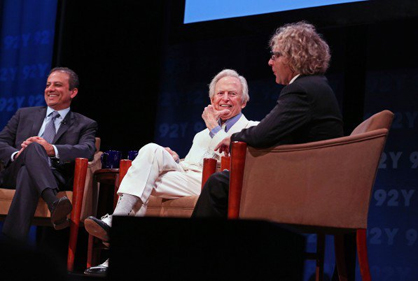
The photo at left (taken by
Bruce Gilbert) shows
Tom Wolfe, seated in between U.S. Attorney
Preet Bharara and moderator
Thane Rosenbaum, discussing his novel
The Bonfire Of The Vanities on stage following a screening of
Brian De Palma's film adaptation. The screening, which took place this past Tuesday (October 27th), was part of the 10th Annual Forum on Law, Culture & Society Film Festival. A video of the discussion is available at
LiveStream, and
David Lot has posted a piece about the event at
Above The Law (which is where the photo here comes from).
"I had low expectations for the movie," writes Lot, "generally regarded as a 'critical and commercial flop,' so I was pleasantly surprised by its entertainment quotient — I wouldn’t call it 'good,' but I would call it 'fun' — and by the amount of law it contains.
Morgan Freeman chews the scenery as the benchslap-happy Judge Leonard White,
Kevin Dunn does a fine job portraying defense lawyer Tom Killian (inspired by the real-life celebrity lawyer
Ed Hayes), the plot turns on an evidentiary issue and the legality of recording conversations in New York, and the film concludes with a stirring courtroom oration by Judge White about the nature of justice.
"(It’s also a pleasure to see the younger versions of several high-profile actors — Tom Hanks, Bruce Willis, Melanie Griffith, Kim Cattrall — especially Hanks, who was quite nice-looking back when he had more hair and fewer pounds. His acting has improved over the years even if his physique has not. Watching him in Bonfire, I thought about how much better he is in the new legal thriller, Bridge of Spies."
TRANSCRIPT FROM BEGINNING OF VIDEO: TOM WOLFE ON BOOK VS. MOVIE
Here's a brief transcript from the beginning of the discussion (viewed at LiveStream), in which Wolfe discusses some differences between the book and the film:
Rosenbaum: It’s been, now, thirty years since the events of this novel—and the best-selling experience of this novel—how often do you watch the film? I know you and your wife sat in our audience and watched it. Was it miserable for you, are you happy to be here watching the film? What is it like when your novel is adapted into a movie—a critically-acclaimed novel—adapted into a movie that’s considered a flop? Wolfe: It takes a while to realize that if someone makes a movie out of your work, it’s not going to be your book. It’s going to be something very different. And this was very… different. [Laughter] For example, at the end of the film, there’s a marvelous, heartfelt, sermon, really, from the judge. And it kind of sweeps your emotions away there at the end, it’s… everything is working out well. In the book, the judge and Sherman McCoy are running for their lives. [Laughing] They had the same mob in there. The outcome’s a little different. Also, this is an example of the changes: the studio was not happy, once they had the book, to see that the book ends with a white judge giving a lecture to a predominantly black audience. And they said, “wait, we can’t do that!” So that’s why they brought in Morgan Freeman, who’s a wonderful actor, but it completely changes the plot of the book. And not completely, but to a large part.
Rosenbaum: And Sherman McCoy, who you unsparingly made unsympathetic in the novel, once the part was given to Tom Hanks, he was treated much more favorably.
Wolfe: Oh, I think that wasn’t accidental, either. We’ve got this man born with a silver spoon in his mouth, and who’s going to have any sympathy for him? You can’t help but have sympathy for Tom Hanks, if he wants you to have sympathy. [Laughter]
Rosenbaum: You know, I was wondering, if you’re reading the papers nowadays, if, for you, whether the novel and the film are a déjà vu all over again. I remember in the novel, Reverend Bacon, it’s not in the film, at some point says, “Is a black life worth less than a white life?” And that sounds a lot like “Black Lives Matter.” Which is, as you know, a mantra of today. And the 2008 financial crises, we had Occupy Wall Street, and now we’re living in an era where there’s a great backlash against bankers, Wall Street insiders, there’s a great sense of wealth inequality, class divisions, and those feelings are precisely the way people responded to Sherman McCoy in the eighties. And it must be weird to you, as if things either haven’t changed, or this is really the sequel—we’re living the sequel of Bonfire Of The Vanities.
Wolfe: Well, one thing that has changed is that, in Bonfire Of The Vanities, there’s a… tremendous emphasis is put on Wall Street, for example. Well, we still know about Wall Street, but the Masters of the Universe are on their feet, they’re shouting as things go for sale, for bidding. Neckties are pulled down, coats and jackets are off. I happened to go through Wall Street twenty-five years after the book came out. You would not recognize the place! Nobody’s standing up and shouting. It’s mostly… at one point, what was known as high-speed trading was almost 75% of the market. And all of the great Masters of the Universe are now all clerks behind their computers, and if they have anything to say, they have to say it on… they have to tweet it. And that’s about it. That’s a huge change.




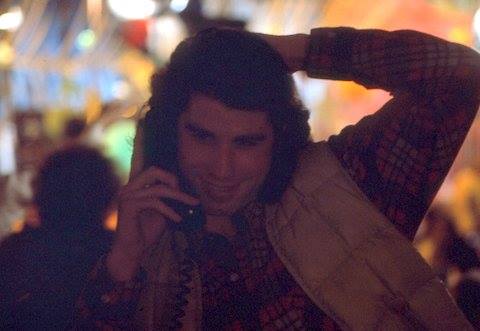
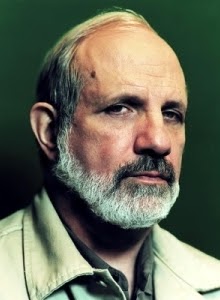

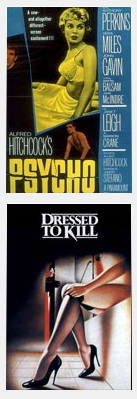 Tonight (Friday),
Tonight (Friday), 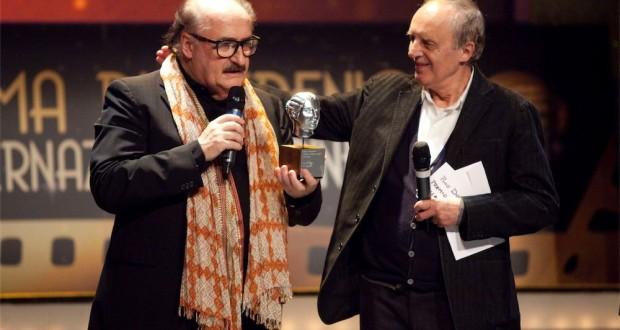
 The photo at left (taken by Bruce Gilbert) shows Tom Wolfe, seated in between U.S. Attorney Preet Bharara and moderator Thane Rosenbaum, discussing his novel The Bonfire Of The Vanities on stage following a screening of Brian De Palma's film adaptation. The screening, which took place this past Tuesday (October 27th), was part of the 10th Annual Forum on Law, Culture & Society Film Festival. A video of the discussion is available at
The photo at left (taken by Bruce Gilbert) shows Tom Wolfe, seated in between U.S. Attorney Preet Bharara and moderator Thane Rosenbaum, discussing his novel The Bonfire Of The Vanities on stage following a screening of Brian De Palma's film adaptation. The screening, which took place this past Tuesday (October 27th), was part of the 10th Annual Forum on Law, Culture & Society Film Festival. A video of the discussion is available at 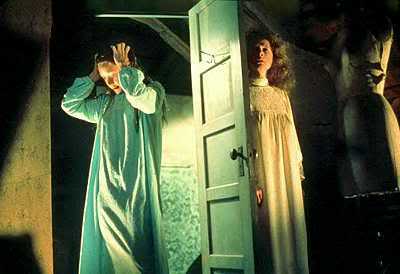
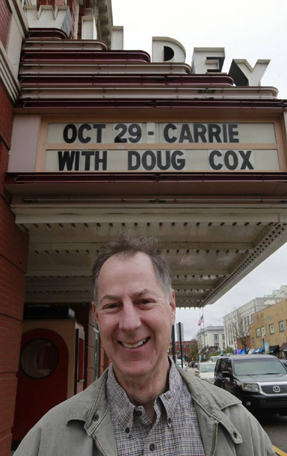 Doug Cox, who played Freddy “The Beak” Holt in Brian De Palma's Carrie, will take part in a Q&A following a screening of the film tonight (Thursday) at 7pm at the
Doug Cox, who played Freddy “The Beak” Holt in Brian De Palma's Carrie, will take part in a Q&A following a screening of the film tonight (Thursday) at 7pm at the